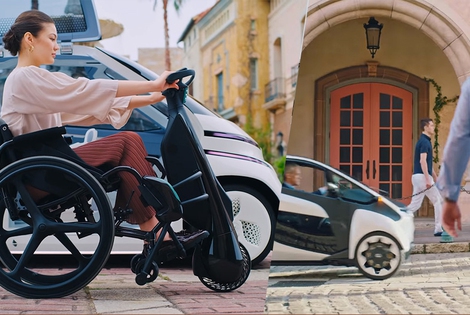
Milan has announced one of Europe’s most ambitious mobility schemes, known as Strade Aperte (open roads). Its goal is to reduce cars in phase 2 of the lockdown by increasing bike lanes and pedestrian areas.
It is commonly known that daily cycling is healthy, but studies and statistics now make it an ever evident fact. In particular, they underline how riding bicycle allows attaining both physical and economic wellbeing. The Netherlands is a practical example of the positive results achieved thanks to mass bicycle mobility, as the study “Dutch
It is commonly known that daily cycling is healthy, but studies and statistics now make it an ever evident fact. In particular, they underline how riding bicycle allows attaining both physical and economic wellbeing.
The Netherlands is a practical example of the positive results achieved thanks to mass bicycle mobility, as the study “Dutch Cycling: Quantifying the Health and Related Economic Benefits” reports. Currently, nearly 27% of total travels in the Netherlands are made by using bicycle. The study shows how investments in bicycle-promoting policies are likely to yield a high benefit-cost ratio in the long term. This means economic advantages of over 5% to the Netherlands’ GDP. The Dutch government invests 0.5 billion per year in cycling lanes and bicycle facilities, bringing about economic and health benefits worth 19 billion euros per year.
In other words, cycling and walking make you healthier and richer. It is confirmed by a study carried out in collaboration with the University of California, which shows that they have benefits to property values, work productivity levels, and academic performances. Each euro invested in favouring alternative mobility is worth 13 euros. Benefits to cities include larger market for local shops, reduced traffic congestion, and lower pollution rates.
500,000 European citizens die of physical inactivity every year, says a study of the International Sport and Culture Association (ISCA). Illnesses like cardiovascular diseases, diabetes, colorectal and breast cancer could reduce their onset thanks to physical activity, which also helps fighting depression, anxiety, and low self-esteem.
According to ISCA President Mogens Kirkeby, “20 minutes a day of moderate activity would make a massive difference and could be as simple as getting off the bus or train a stop earlier and taking a brisk walk to work; taking the stairs instead of the elevator, or even just playing in the park or garden with the kids”. By cutting the current European inactivity level by one fifth, 100,000 lives and 16 billion euros could be saved every year.
Siamo anche su WhatsApp. Segui il canale ufficiale LifeGate per restare aggiornata, aggiornato sulle ultime notizie e sulle nostre attività.
![]()
Quest'opera è distribuita con Licenza Creative Commons Attribuzione - Non commerciale - Non opere derivate 4.0 Internazionale.
Milan has announced one of Europe’s most ambitious mobility schemes, known as Strade Aperte (open roads). Its goal is to reduce cars in phase 2 of the lockdown by increasing bike lanes and pedestrian areas.
Formula 1, the world’s most important auto racing championship, has decided to turn the page and aim for carbon neutrality with the support of its teams, drivers and the whole racing circus.
Toyota and LifeGate began telling the story of hybrid mobility back in 2006, now, on the road to the Tokyo 2020 Olympics, they’re still treading the path of sustainable mobility. Here are the main steps of the journey.
Germany’s first solar bicycle lane could be the prototype for the roads of the future. The photovoltaic tiles melt snow and ice, and are capable of absorbing noise.
The Vespa is back in an electric version. Production has just started and the first models can be reserved online starting from October.
The city of Utrecht, in the Netherlands, is home to a bridge for cycling and walking that stretches over roof garden of a Montessori school. This project enhances practicality and will allow families to bring children to school by bike, passing through green areas. Despite their functionality, bridges are often seen as an infrastructure that is
The Lego hair bike helmet is the latest Internet craze. For now it’s just a prototype but production on a large scale will probably start soon.
Just as fires often give way to new growth, after the Dieselgate scandal, which saw Volkswagen cheating on US emission rules, the German car manufacturer radically changed course, beginning to focus on sustainable mobility. The German car company aims to propose thirty zero-emission models and produce at least one million battery electric vehicles by 2025. An ambitious mission
Sustainable, two-wheel mobility is triumphing in Copenhagen. After years of investments, policies, and infrastructural changes, bikes now outnumber cars in the city centre. The website Copenhagenize has released data linked to the number of vehicles entering the city centre, which are monitored by the city’s administration on a daily basis. Last year, 265,700 bikes have entered







